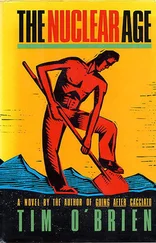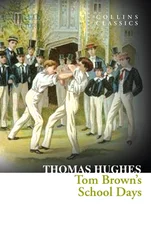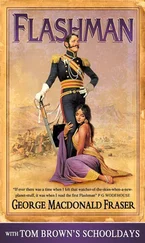Thomas Hughes - Tom Brown at Oxford
Здесь есть возможность читать онлайн «Thomas Hughes - Tom Brown at Oxford» — ознакомительный отрывок электронной книги совершенно бесплатно, а после прочтения отрывка купить полную версию. В некоторых случаях можно слушать аудио, скачать через торрент в формате fb2 и присутствует краткое содержание. Жанр: foreign_prose, foreign_language, на английском языке. Описание произведения, (предисловие) а так же отзывы посетителей доступны на портале библиотеки ЛибКат.
- Название:Tom Brown at Oxford
- Автор:
- Жанр:
- Год:неизвестен
- ISBN:нет данных
- Рейтинг книги:5 / 5. Голосов: 1
-
Избранное:Добавить в избранное
- Отзывы:
-
Ваша оценка:
- 100
- 1
- 2
- 3
- 4
- 5
Tom Brown at Oxford: краткое содержание, описание и аннотация
Предлагаем к чтению аннотацию, описание, краткое содержание или предисловие (зависит от того, что написал сам автор книги «Tom Brown at Oxford»). Если вы не нашли необходимую информацию о книге — напишите в комментариях, мы постараемся отыскать её.
Tom Brown at Oxford — читать онлайн ознакомительный отрывок
Ниже представлен текст книги, разбитый по страницам. Система сохранения места последней прочитанной страницы, позволяет с удобством читать онлайн бесплатно книгу «Tom Brown at Oxford», без необходимости каждый раз заново искать на чём Вы остановились. Поставьте закладку, и сможете в любой момент перейти на страницу, на которой закончили чтение.
Интервал:
Закладка:
"But I'd sooner have to fight my own way in the world after all; wouldn't you?" said Tom.
"H-m-m!" said the Captain, throwing himself back in the chair, and smiling; "can't answer off hand. I'm a third year man, and begin to see the other side rather clearer than I did when I was a freshman like you. Three years at Oxford, my boy, will teach you something of what rank and money count for, if they teach you nothing else."
"Why, here's the Captain singing the same song as Hardy," thought Tom.
"So you two have to go to the proctor to-morrow?"
"Yes."
"Shall you go? Drysdale won't."
"Of course I shall. It seems to me childish not to go; as if I were back in the lower school again. To tell you the truth, the being sent for isn't pleasant; but the other I couldn't stand."
"Well, I don't feel anything of that sort. But I think you're right on the whole. The chances are that he'll remember your name, and send for you again if you don't go; and then you'll be worse off."
"You don't think he'll rusticate us, or anything of that sort?" said Tom, who had felt horrible twinges at the Captain's picture of the effects of rustication on ordinary mortals.
"No; not unless he's in a very bad humour. I was caught three times in one night in my freshman's term, and only got an imposition."
"Then I don't care," said Tom. "But it's a bore to have been caught in so seedy an affair; if it had been a real good row, one wouldn't have minded so much."
"Why, what did you expect? It was neither better nor worse than the common run of such things."
"Well, but three parts of the crowd were boys."
"So they are always – or nine times out of ten at any rate."
"But there was no real fighting; at least, I only know I got none."
"There isn't any real fighting, as you call it, nine times out of ten."
"What is there, then?"
"Why, something of this sort. Five shopboys, or scouts' boys, full of sauciness, loitering at an out-of-the-way street corner. Enter two freshmen, full of dignity and bad wine. Explosion of inflammable material. Freshmen mobbed into High-street or Broad-street, where the tables are turned by a gathering of many more freshmen, and the mob of town boys quietly subsides, puts its hands in its pockets, and ceases to shout 'Town, town!' The triumphant freshmen march up and down for perhaps half an hour, shouting 'Gown, gown!' and looking furious, but not half sorry that the mob vanishes like mist at their approach. Then come the proctors, who hunt down, and break up the gown in some half-hour or hour. The 'town' again marches about in the ascendant, and mobs the scattered freshmen, wherever they can be caught in very small numbers."
"But with all your chaff about freshmen, Captain, you were in it yourself to-night; come now."
"Of course, I had to look after you two boys."
"But you didn't know we were in when you came up?"
"I was sure to find some of you. Besides, I'll admit one don't like to go in while there's any chance of a real row as you call it, and so gets proctorized in one's old age for one's patriotism."
"Were you ever in a real row?" said Tom.
"Yes, once, about a year ago. The fighting numbers were about equal, and the town all grown men, labourers and mechanics. It was desperate hard work, none of your shouting and promenading. That Hardy, one of our Bible clerks, fought like a Paladin; I know I shifted a fellow in corduroys on to him, whom I had found an uncommon tough customer, and never felt better pleased in my life than when I saw the light glance on his hobnails as he went over into the gutter two minutes afterwards. It lasted, perhaps, ten minutes, and both sides were very glad to draw off."
"But, of course, you licked them?"
"We said we did."
"Well, I believe that a gentleman will always lick in a fair fight."
"Of course you do, it's the orthodox belief."
"But don't you?"
"Yes; if he is as big and strong, and knows how to fight as well as the other. The odds are that he cares a little more for giving in, and that will pull him through."
"That isn't saying much, though."
"No, but it's quite as much as is true. I'll tell you what it is, I think just this, that we are generally better in the fighting way than shopkeepers, clerks, flunkies, and all fellows who don't work hard with their bodies all day. But the moment you come to the real hard-fisted fellow; used to nine or ten hours' work a day, he's a cruel hard customer. Take seventy or eighty of them at haphazard, the first you meet, and turn them into St. Ambrose any morning – by night I take it they would be lords of this venerable establishment if we had to fight for the possession; except, perhaps, for that Hardy – he's one of a thousand, and was born for a fighting man; perhaps he might pull us through."
"Why don't you try him in the boat?"
"Miller manages all that. I spoke to him about it after that row, but he said that Hardy had refused to subscribe to the club, said he couldn't afford it, or something of the sort. I don't see why that need matter, myself, but I suppose, as we have rules, we ought to stick to them."
"It's a great pity though. I know Hardy well, and you can't think what a fine fellow he is."
"I'm sure of that. I tried to know him, and we don't get on badly as speaking acquaintance. But he seems a queer, solitary bird."
Twelve o'clock struck; so Tom wished the Captain good night and departed, meditating much on what he had heard and seen. The vision of terrible single combats, in which the descendant of a hundred earls polishes off the huge representative of the masses in the most finished style, without a scratch on his own aristocratic features, had faded from his mind.
He went to bed that night, fairly sickened with his experience of a town and gown row, and with a nasty taste in his mouth. But he felt much pleased at having drawn out the Captain so completely. For "the stroke" was in general a man of marvellous few words, having many better uses than talking to put his breath to.
Next morning he attended at the proctor's rooms at the appointed time, not without some feeling of shame at having to do so; which, however, wore off when he found some dozen men of other colleges waiting about on the same errand as himself. In his turn he was ushered in, and as he stood by the door, had time to look the great man over as he sat making a note of the case he had just disposed of. The inspection was reassuring. The proctor was a gentlemanly, straight-forward looking man of about thirty, not at all donnish, and his address answered to his appearance.
"Mr. Brown, of St. Ambrose's, I think," he said.
"Yes, sir."
"I sent you to your college yesterday evening; did you go straight home?"
"No, sir."
"How was that, Mr. Brown?"
Tom made no answer, and the proctor looked at him steadily for a few seconds, and then repeated.
"How was that?"
"Well, sir," said Tom, "I don't mean to say I was going straight to college, but I should have been in long before you sent, only I fell in with the mob again, and then there was a cry that you were coming. And so-" He paused.
"Well," said the proctor, with a grim sort of curl about the corners of his mouth.
"Why, I ran away, and turned into the first place which was open, and stopped till the streets were quiet."
"A public house, I suppose."
"Yes, sir; 'The Choughs.'"
The proctor considered a minute, and again scrutinized Tom's look and manner, which certainly were straightforward, and without any tinge of cringing or insolence.
"How long have you been up?"
"This is my second term, sir."
"You have never been sent to me before, I think?"
"Never, sir."
"Well, I can't overlook this, as you yourself confess to a direct act of disobedience. You must write me out 200 lines of Virgil. And now, Mr. Brown, let me advise you to keep out of disreputable street quarrels in future. Good morning."
Читать дальшеИнтервал:
Закладка:
Похожие книги на «Tom Brown at Oxford»
Представляем Вашему вниманию похожие книги на «Tom Brown at Oxford» списком для выбора. Мы отобрали схожую по названию и смыслу литературу в надежде предоставить читателям больше вариантов отыскать новые, интересные, ещё непрочитанные произведения.
Обсуждение, отзывы о книге «Tom Brown at Oxford» и просто собственные мнения читателей. Оставьте ваши комментарии, напишите, что Вы думаете о произведении, его смысле или главных героях. Укажите что конкретно понравилось, а что нет, и почему Вы так считаете.












